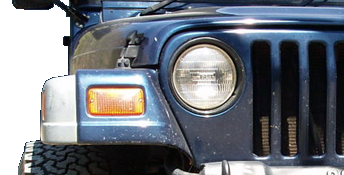ok here is the deal.. I have been fighting my brake issues for two weeks with no luck and need some help
I have ford 9" front and rear axles with chevy 3/4 ton disc on all four corners.
I have installed a 99 dodge 2500 MC and kept the yj Booster.. I have also gutted the stock proportioning valve for the rear brakes. we have bleed the entire system atleast 3 times and no matter what I do I can not get a firm pedal.
any ideas?
I have ford 9" front and rear axles with chevy 3/4 ton disc on all four corners.
I have installed a 99 dodge 2500 MC and kept the yj Booster.. I have also gutted the stock proportioning valve for the rear brakes. we have bleed the entire system atleast 3 times and no matter what I do I can not get a firm pedal.
any ideas?

